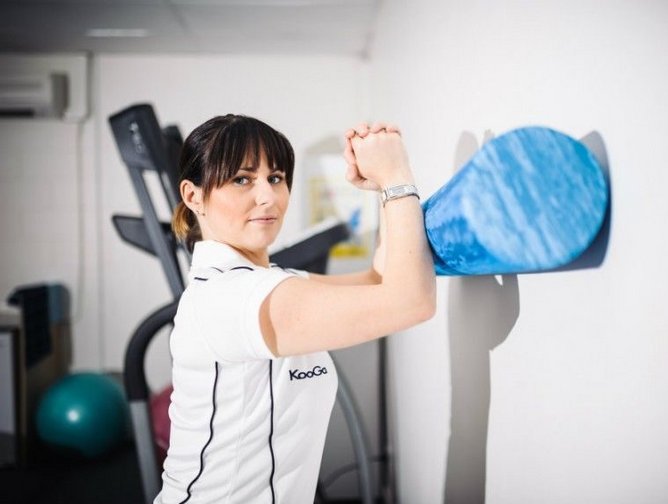Founded in 1991 by a dedicate group of university academics Exercise & Sports Science Australia (ESSA) is a professional organisation committed to establishing, promoting and defending the career paths of university trained exercise and sports science practitioners.
On completion of university study and having met ESSA’s membership and /or accreditation requirements, these professionals are eligible to join ESSA as exercise scientists, exercise physiologists or sports scientists. ESSA represents and advocates for these three distinct professional groups:
- Exercise scientists - specialise in the design, implementation and evaluation of exercise and physical activity for healthy people. They provide programs for improving general health, the prevention of chronic diseases, health promotion and enhanced sports performance. Exercise scientists work in hospitals, community health units, workplaces, gymnasiums and in education.
- Accredited Exercise Physiologists (AEP) - hold a four-year university degree and are allied health professionals who specialise in the delivery of exercise for the prevention and management of chronic diseases and injuries. AEPs provide support for clients with conditions such as cardiovascular disease, diabetes, osteoporosis, mental health problems, cancer, arthritis, pulmonary disease and more. AEPs are eligible to register with Medicare Australia, the Department of Veterans’ Affairs and WorkCover and are recognised by most private health insurers.
- Accredited Sports Scientists - Sports scientists hold, at minimum, an undergraduate honours degree in the field of exercise and sports science. Many sports scientists have a doctorate and specialise in an area of performance management. They help individual athletes and teams to improve their sporting performance through the use of scientific knowledge, methods and applications in the areas of physiology; biomechanics; psychology; and motor control and motor development. They evaluate research, and they advise on the technical and practical aspects of training; injury prevention; technique; performance and recovery practices. Sports scientists work at all levels of sport.
Most exercise science graduates do not work in occupations where they are titled “Exercise Scientist” and are often employed as cardiac scientists, sleep technicians or corporate and workplace health consultants. Many also work in the fitness industry as personal trainers. ESSA is committed to expanding the public’s awareness of an exercise scientist’s competencies and is particularly motivated to see the consumer become informed about the qualifications of their trainers.
The AEP profession has seen rapid growth in recent years, triggered by the decision of the then Health Minister Hon Tony Abbott to provide AEPs with access to Medicare provider numbers in 2006. AEP services are now the fourth most utilised allied health service in the Medicare-funded chronic disease management program, with demand increasing 900% since 2006. This demand is expected to continue because:
- AEPs are increasingly recognised by medical and other allied health practitioners for their skills in chronic disease prevention and management
- the incidence of chronic diseases is expected to rise significantly in coming decades
- the evidence underpinning the efficacy of exercise in preventing and treating chronic disease and its cost effectiveness is strong (ESSA position statements, Exercise is Medicine factsheets, scores of Cochrane reviews)
ESSA believes AEPs are still an underutilised allied health profession who have the potential to positively impact the health of many Australian including those with special requirements such as older people and those living with a mental illness or a disability.
ESSA has been a passionate advocate of the sports science profession for many years, introducing a voluntary accreditation process for the profession in 1996. Recent media attention via the ASADA investigations into some professional sporting codes has seen the sports science profession unfairly tainted. ESSA recently commissioned Deakin University to profile the Australian High Performance and Sports Science industry and found that most are highly educated (PhD level) health professionals who would like to see compulsory regulation and accreditation of their industry. Port Adelaide Football Club recently became the first AFL team to have their sports science staff accredited with ESSA and ESSA continues to lobby for a compulsory national accreditation scheme for sports scientists.
ESSA has a strong and comprehensive regulatory system to ensure members uphold best
practice professional standards and behaviour. ESSA established the National University Course Accreditation Program (NUCAP) which provides universities with a framework to build courses of excellence in exercise and sports science and ensures graduate outcomes are aligned with industry requirements. From 1 January 2014 all AEPs must graduate from a NUCAP accredited course. Membership of ESSA not only provides for a robust accreditation and regulation system for exercise and sports science professionals but also offers access to the latest research through our internationally – recognised professional development program, EBSCO database and ACTIVATE industry magazine.
Our vision is to achieve member excellence in exercise and sports science that will enrich the health and performance of every Australian.


